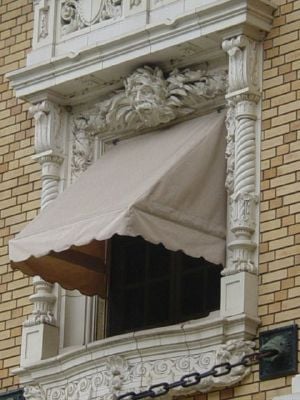Eclecticism
Eclecticism is a conceptual approach that does not hold rigidly to a single paradigm or set of assumptions, but instead draws upon multiple theories, styles, or ideas to gain complementary insights into a subject, or applies different theories in particular cases.
It can be inelegant, and eclectics are sometimes criticised for lack of consistency in their thinking, but it is common in many fields of study. For example, most psychologists accept parts of behaviorism, but do not attempt to use the theory to explain all aspects of human behavior. A statistician may use frequentist techniques on one occasion and Bayesian ones on another. An example of eclecticism in economics is John Dunning's eclectic theory of international production.
Origin
Eclecticism was first practiced by a group of ancient philosophers who attached themselves to no real system, but selected from existing philosophical beliefs those doctrines that seemed most reasonable to them. Out of this collected material they constructed their new system of philosophy. The term comes from the Greek eklektikos: choosing the best. Well known eclectics in Greek philosophy were the Stoics Panaetius and Posidonius, and the New Academics Carneades and Philo of Larissa. Among the Romans, Cicero was thoroughly eclectic, as he united the Peripatetic, Stoic, and New Academic doctrines. Further eclectics were Varro and Seneca.
Architecture and art
The term eclecticism is used to describe the combination in a single work of elements from different historical styles, chiefly in architecture and, by implication, in the fine and decorative arts. The term is sometimes also loosely applied to the general stylistic variety of 19th century architecture after Neo-classicism (c. 1820), although the revivals of styles in that period have, since the 1970s, generally been referred to as aspects of historicism.
Eclecticism plays an important role in critical discussions and evaluations but is somehow distant from the actual forms of the artefacts to which it is applied, and its meaning is thus rather indistinct. The simplest definition of the term—that every work of art represents the combination of a variety of influences—is so basic as to be of little use. In some ways Eclecticism is reminiscent of Mannerism in that the term was used pejoratively for much of the period of its currency, although, unlike Mannerism, Eclecticism never amounted to a movement or constituted a specific style: it is characterized precisely by the fact that it was not a particular style.
Psychology
Eclecticism is recognized in approaches to psychology that see many factors influencing behaviour and the psyche, and among those who consider all perspectives in identifying, changing, explaining, and determining behaviour.
Martial arts
Some martial arts can be described as eclectic in the sense that they borrow techniques from a wide variety of other arts. The Martial Arts system developed by Bruce Lee called Jeet Kune Do is classified as an eclectic system. This system favors borrowing freely from other systems within a free floating framework. As with other disciplines that incorporate eclecticism Jeet Kune Do's philosophy does not hold rigidly to a single paradigm or set of assumptions or conclusions but encourages a student to learn what is useful for themselves.
Music
Eclecticism is also known as a new popular music stream in the house scene. Dutch DJs like Don Diablo, Gregor Salto and Erick E are active in this music. Eclecticism is popular among Experimental Music Artists like Alex Ross-Iver,Tom Waits and Les Claypool.
Robin Holloway cites the composers Britten, Shostakovich, Copland, Poulenc and Tippett as eclectic composers, 'along the lines first boldly laid by Stravinsky; they make their idiom from very diverse sources, assimilating and transforming them into themselves'
See also
- Eclecticism in art
- Eclecticism in music
- Eclecticism (medicine)
- Freeform (radio format)
ReferencesISBN links support NWE through referral fees
bg:Еклектика ca:Eclecticisme da:Eklekticisme de:Eklektizismus es:Eclecticismo fr:Éclectisme it:Eclettismo he:סגנון אקלקטי (ארכיטקטורה) hu:Eklektika nl:Eclecticisme no:Eklektisisme pl:Eklektyzm pt:Ecleticismo ru:Эклектика sk:Eklekticizmus sr:Еклектицизам fi:Eklektinen sv:Eklekticism tr:Eklektisizm
Credits
New World Encyclopedia writers and editors rewrote and completed the Wikipedia article in accordance with New World Encyclopedia standards. This article abides by terms of the Creative Commons CC-by-sa 3.0 License (CC-by-sa), which may be used and disseminated with proper attribution. Credit is due under the terms of this license that can reference both the New World Encyclopedia contributors and the selfless volunteer contributors of the Wikimedia Foundation. To cite this article click here for a list of acceptable citing formats.The history of earlier contributions by wikipedians is accessible to researchers here:
The history of this article since it was imported to New World Encyclopedia:
Note: Some restrictions may apply to use of individual images which are separately licensed.

